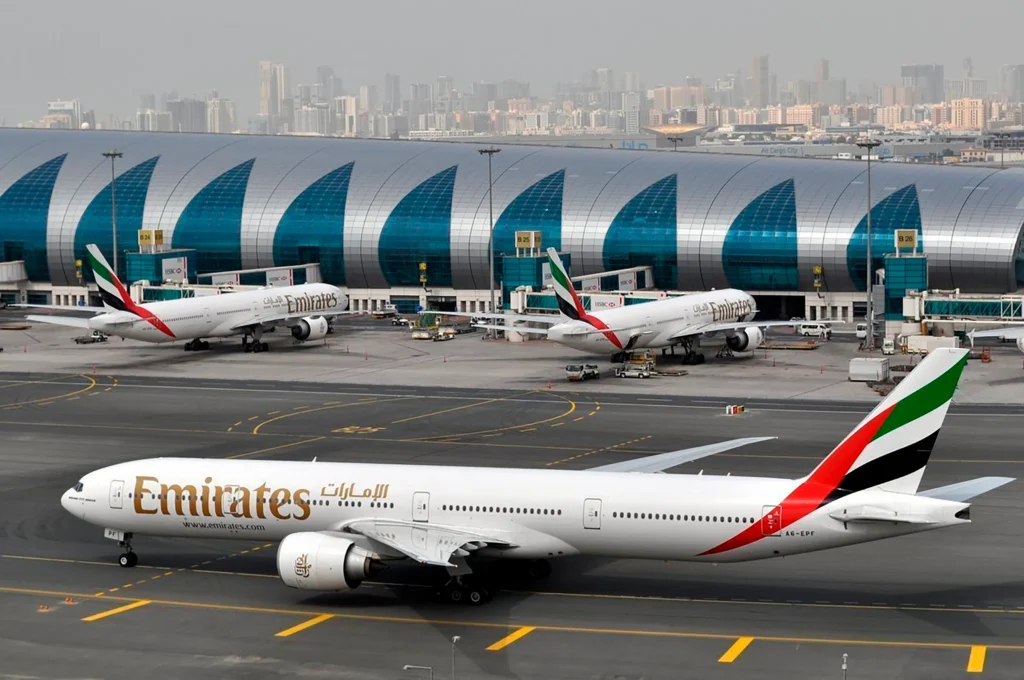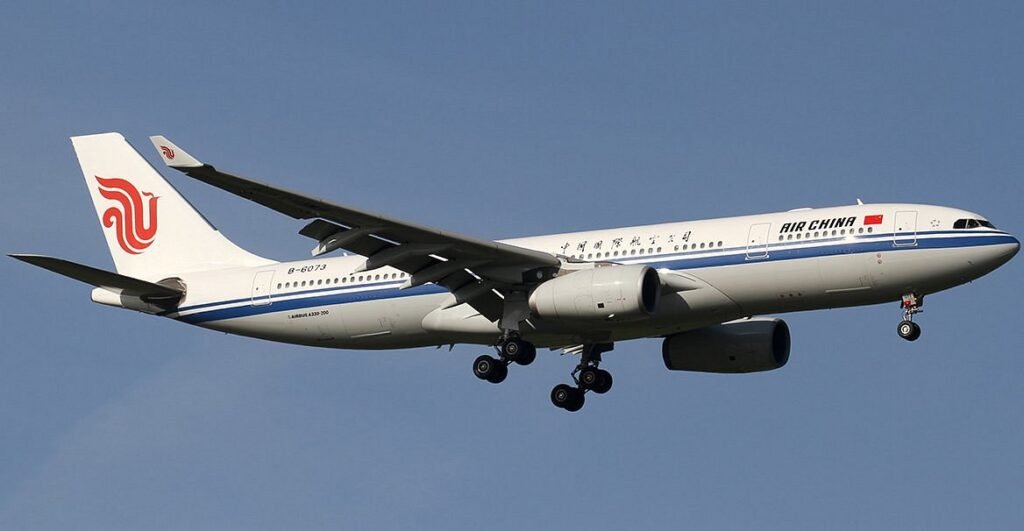The Emirates Air China partnership is reaching new heights. In a major move to strengthen air travel between the United Arab Emirates and China, Emirates has announced that it will operate 49 weekly flights to the Chinese mainland. The expanded schedule reflects growing demand and deepening ties between the two countries.
This strategic decision is part of a broader plan between Emirates and Air China to enhance cooperation, align networks, and improve connectivity for both leisure and business travelers.
UAE-China Travel Gets a Major Boost
Starting this summer, Emirates will offer 49 flights each week to three key cities in mainland China: Beijing, Shanghai, and Guangzhou. These flights aim to improve access for travelers, traders, and tourists traveling between the Middle East and China.

The move comes at a time when China’s outbound travel demand is steadily increasing after years of pandemic-related restrictions. Emirates is positioning itself to capture this growing market while strengthening its status as a leading global carrier.
Breakdown of Emirates’ China Flight Schedule

Here is how the 49 weekly flights will be spread across major Chinese destinations:
- Beijing (Capital Airport and Daxing Airport):
Emirates will offer flights to both Beijing Capital International Airport and the newer Beijing Daxing International Airport. - Shanghai:
Dubai to Shanghai flights are being increased to twice daily, catering to business travelers and tourists. - Guangzhou:
Emirates will operate daily flights, reinforcing trade and tourism ties with South China.
The updated flight schedule offers travelers more flexibility, shorter layovers, and better connectivity to global destinations via Dubai.
Why This Partnership Matters
The Emirates Air China partnership is not just about adding flights—it’s about strengthening aviation links between two fast-growing markets. China is one of the world’s largest economies, and the UAE is a major business hub and travel connector.
Through this collaboration, Emirates and Air China are looking to:
- Coordinate schedules for better connectivity.
- Share operational resources for efficiency.
- Collaborate on codeshare agreements to expand the number of available routes.
Both airlines aim to make travel smoother for passengers by synchronizing services, improving baggage handling for connecting flights, and offering joint loyalty rewards.
High Demand from Business and Leisure Travelers
The demand for air travel between the UAE and China is rising sharply, driven by several factors:
- Resumption of business ties after pandemic disruptions.
- Increased tourism exchanges between the two countries.
- Improved visa policies and bilateral agreements.
With more Chinese tourists heading to the UAE and vice versa, the increased flight frequency is expected to help meet growing demand while improving passenger convenience.
A Win-Win for Passengers and Airlines
Passengers will now have more flight options, better timings, and seamless connections when traveling between China and the UAE. For Emirates, this move helps rebuild its Asia network, while Air China benefits from shared capacity and services.
According to Emirates, the extended cooperation will allow passengers to connect not just to major Chinese cities, but also to second-tier destinations in mainland China through Air China’s extensive domestic network.
Likewise, Air China passengers can enjoy better access to the Middle East, Europe, Africa, and the Americas through Emirates’ global routes via Dubai.
What It Means for the Aviation Industry
This announcement sends a strong signal to the global aviation industry. After the slowdowns of recent years, partnerships like this one reflect a renewed confidence in international air travel. It also shows that:
- Airlines are willing to collaborate, not just compete.
- Strategic partnerships help maximize fleet efficiency and reduce operational costs.
- There’s a strong focus on Asia-Middle East travel corridors, which are seeing high growth potential.
Cargo and Trade Also Set to Benefit
The Emirates Air China partnership is expected to boost cargo capacity as well. Emirates SkyCargo, the airline’s freight division, will benefit from the increased frequencies, especially to industrial and manufacturing hubs like Shanghai and Guangzhou.
With higher cargo volumes, the route will support industries such as:
- E-commerce and retail
- Pharmaceuticals
- Electronics
- Automotive parts and machinery
This added cargo capacity will improve supply chain efficiency, helping businesses in both countries transport goods faster and more reliably.
Comments from Emirates Leadership

In an official statement, Emirates’ President Tim Clark said:
“China is one of our most important markets, and we’re thrilled to deepen our relationship with Air China. This partnership will help us serve growing passenger and cargo demand between our two countries.”
Similarly, senior officials from Air China welcomed the move, stating that the cooperation will create new opportunities for both airlines and offer passengers world-class service and greater choice.
Looking Ahead: More Cooperation on the Horizon
Industry insiders suggest this may just be the beginning of broader collaboration between Emirates and Air China. With a growing demand for connectivity between China and the Middle East, further joint initiatives may include:
- New route announcements.
- Joint loyalty program perks.
- Shared lounges and airport services.
Both airlines are expected to work closely on improving digital booking integration, customer service alignment, and possibly co-branded marketing campaigns to attract more travelers.
Conclusion
The Emirates Air China partnership marks a new chapter in international aviation cooperation. With 49 weekly flights to mainland China, Emirates is not only enhancing its route network but also building a stronger bridge between East and West.
Travelers, traders, and tourists will all benefit from this strategic move that brings greater connectivity, more travel options, and improved service on both ends of the route.
As the aviation industry continues to recover and expand, partnerships like this will be essential for long-term growth, offering a glimpse into how airlines can collaborate to meet global demand in a post-pandemic world.
Read More: UAE Signs $2.45 Billion Missile Boat Deal With Kuwait













